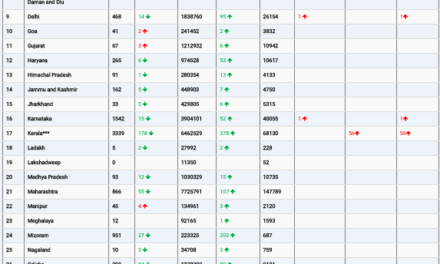Vision loss can occur at any age, but in young children, early detection is particularly crucial. Dr. Christina Weng, an assistant professor of ophthalmology at Baylor College of Medicine, emphasizes the importance of recognizing signs of vision impairment in children. If left unaddressed, certain eye problems could not only affect a child’s schoolwork but may also lead to permanent vision loss.
“There is a period—approximately the first eight years of life—when the brain and the eye are learning to work together, and the visual system is still developing,” explains Dr. Weng. “During this time, parents should be vigilant for behavioral changes, which can indicate potential eye problems.”
Behavioral Signs to Watch For
Children often struggle to articulate vision problems, leading to behavioral changes that can be misunderstood as mere conduct issues. According to Dr. Weng, these changes may manifest as acting out in class or at home and can even affect academic performance. She suggests that parents ask themselves key questions to assess whether their child might be experiencing vision difficulties:
- Does my child become upset when watching a movie from a distance?
- Do they avoid reading or other close-up activities?
- Do they seem to ignore people or objects at a distance?
In addition to these behavioral clues, other symptoms of vision loss include:
- Frequent headaches
- Excessive eye rubbing
- Holding books, phones, or tablets extremely close or far away
- Closing one eye to read
- Squinting, crossing, or wandering of the eyes
- Inability to focus
- Declining grades at school
- Complaints about difficulty seeing the board at school
Early Detection Is Key
While some vision loss may be unavoidable, Dr. Weng stresses the importance of early detection. “Parents often ask if certain activities, like sitting closer to the board or avoiding reading in dim light, can improve eye health. Unfortunately, there is no strong evidence to support these measures,” she says.
Instead, she recommends several proactive steps to help prevent or delay vision loss:
- Address any eye or vision problems immediately with an eye care provider.
- Schedule regular eye exams, as some conditions, like glaucoma, can be asymptomatic in their early stages.
- Protect the eyes from injury by wearing eye protection during activities that pose a risk.
If a child exhibits any signs of vision impairment, Dr. Weng advises scheduling a comprehensive eye examination with an ophthalmologist. “The sooner any eye issues are detected, the better the chance of preserving good vision,” she says.
Recommended Eye Screening Schedule
Dr. Weng also recommends regular eye screenings throughout infancy and childhood:
- Newborn screening
- Six to 12 months
- Three years of age
- Periodically during school-age years
These evaluations, performed by a skilled eye care provider, are crucial as different problems can arise at different ages. Dr. Weng particularly emphasizes the growing concern of myopia, or near-sightedness, which is becoming increasingly prevalent among younger populations.
“Myopia is associated with a higher risk of vision-threatening issues such as retinal detachment,” notes Dr. Weng. “Research is actively being conducted to find effective prevention methods. There is evidence that reducing and taking frequent breaks from near work, such as reading on a phone or tablet, and spending time outdoors may help curb the development of myopia in children and adolescents.”
Conclusion
Vision is a vital part of a child’s development and overall well-being. Regular eye screenings and attention to early signs of vision problems can make a significant difference in maintaining your child’s eye health. If any signs of vision loss are noticed, don’t delay—schedule an eye examination to ensure your child’s visual system is functioning optimally.












